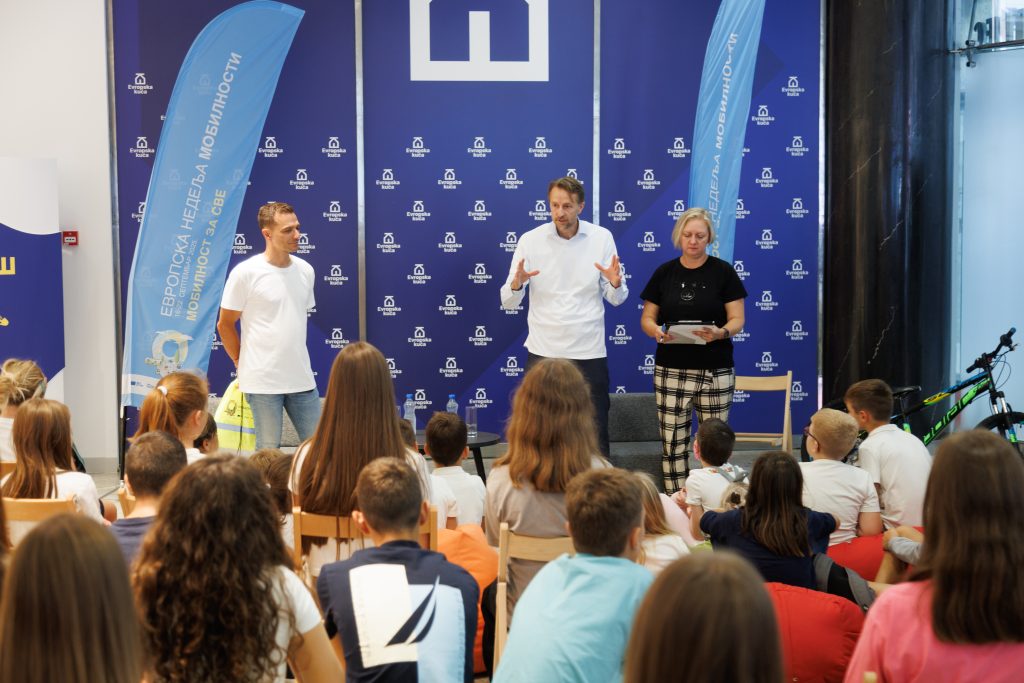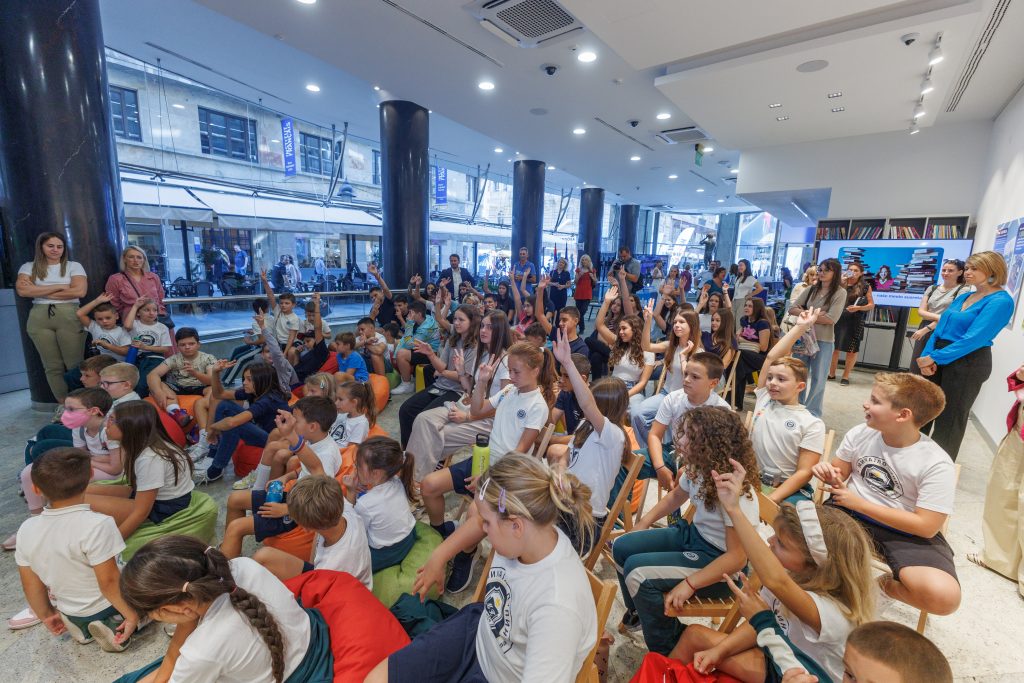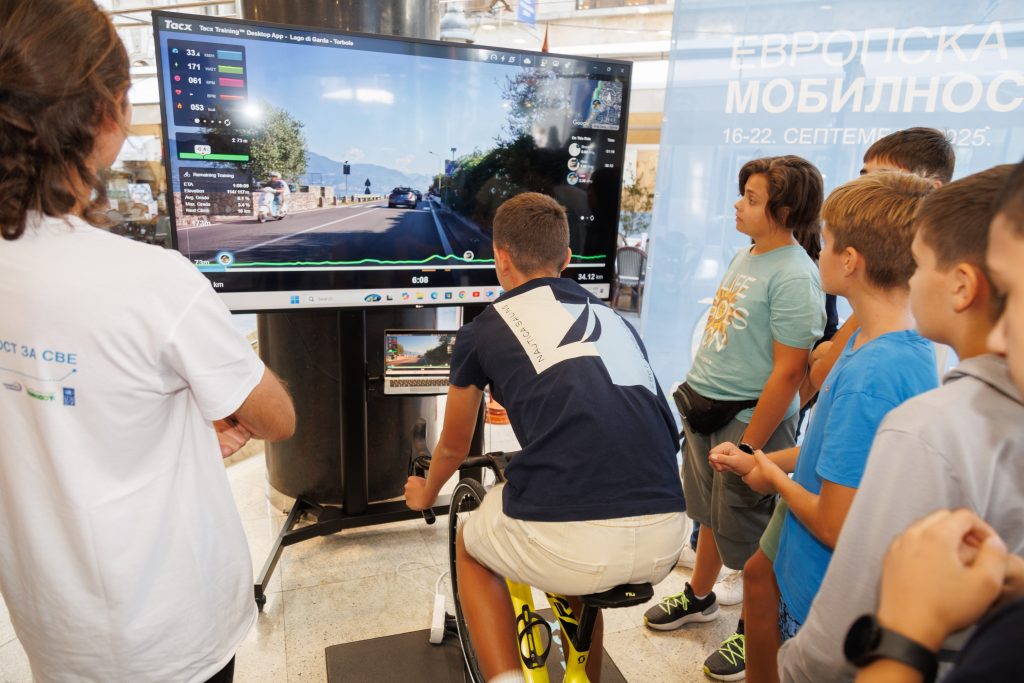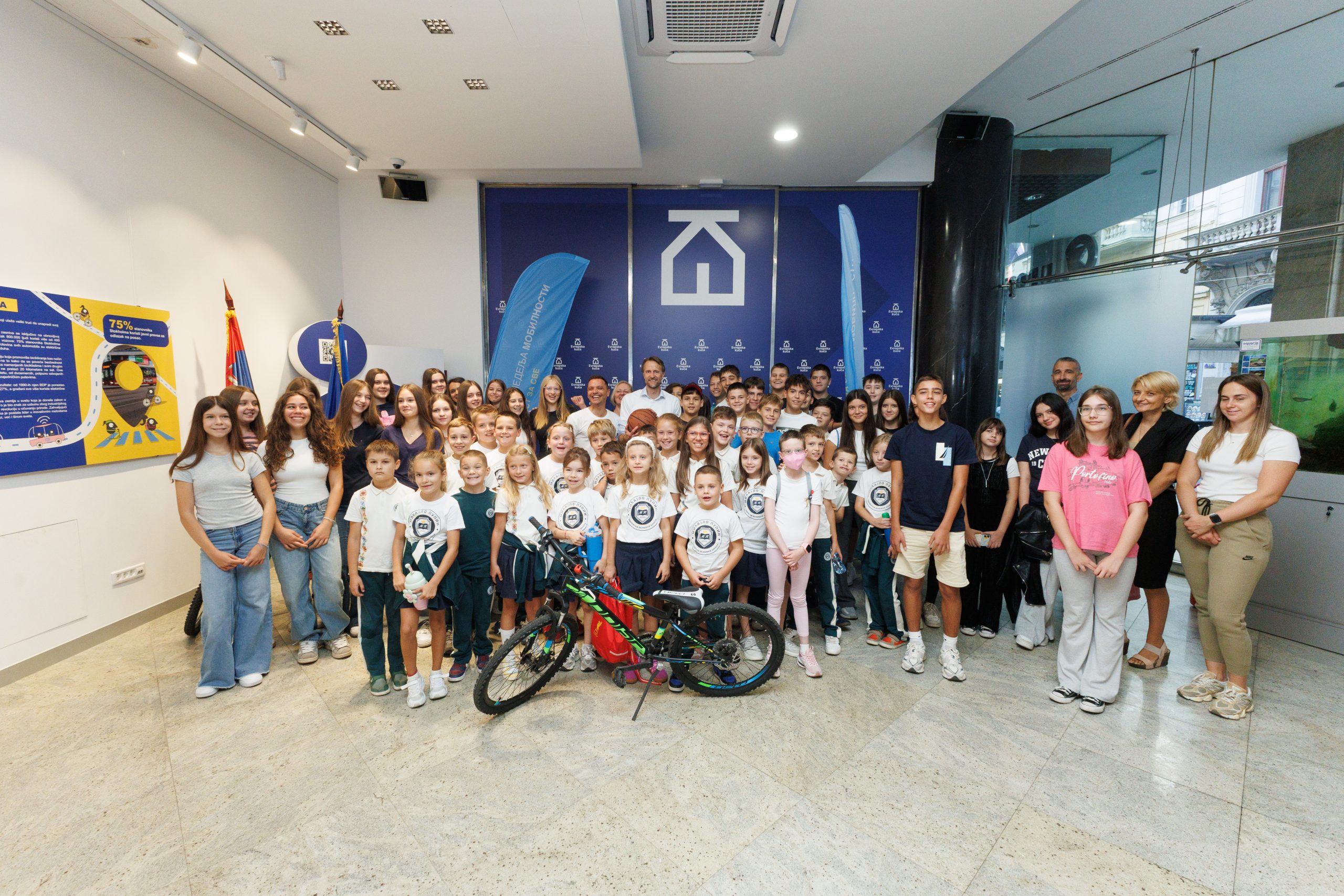Cycling, learning about the basics of mobility for everyone and talking about best European experiences were in focus of the opening of European Mobility Week 2025 in Belgrade.
“Sustainable and healthy mobility is essential, especially in urban environments. It directly benefits citizens—cyclists, runners, public transport users, and those who choose electric vehicles—but it also contributes to social development, well-being, and green economic growth,” said Andreas von Beckerath, EU Ambassador to Serbia, at the opening event.

The week began with highlight everyone walking through the city centre could see: Belgrade’s first-ever outdoor European Mobility Week cycling polygon in the heart of Knez Mihailova, in front of the Europe House. Designed in the colours of the campaign and carrying the theme Mobility for Everyone, the track featured an obstacle course with ramps, road bumps, and an inflatable gate—inviting citizens to experience cycling in a fun and engaging way.
Ivan Stević, Serbian Olympic cyclist and founder of Tour de Fun, together with the EU Ambassador, led an interactive workshop on urban and sustainable mobility. The programme included a traffic safety session and open discussion with pupils from Mihajlo Pupin and Laza Kostić elementary schools. At the end, pupils gifted the Ambassador a signed basketball as a symbolic memento of his first European Mobility Week in Serbia.

“Pay attention to traffic signs, wear helmets and protective gear, always respect other participants in traffic, and ride your bikes knowing it’s not only good for your health but also fun and environmentally friendly. Unlike short car trips that consume fuel and pollute, cycling promotes smart and sustainable mobility,” emphasized Stević.
Pupils also tried out special digital trainer bikes, connected online to large LED screens, offering a virtual ride through cycling tracks across Europe—together with other riders from around the world. In addition, the Green Express electric tricycle was showcased at Europe House, presenting a clean energy solution for urban delivery services without pollution.
The event was enriched by Pulse of Europe, which partnered with Europe House to provide participants with valuable insights through an exhibition of practical examples and case studies on sustainable mobility from across Europe.
Serbia, is traditionally a part of this continent-wide campaign. The activities are organised in partnership with the EU for Green Agenda in Serbia project (implemented by UNDP), Transport Community and Standing Conference of Towns and Municipalities.
The campaign now moves to Niš on 17 September, where Europe House Niš will host the hybrid event “Future-Proof Living Spaces for All”, organized under the FutureECOS Interreg Europe project with participants from Serbia and five European countries exchanging knowledge on sustainable mobility, smart urban design, and community engagement. Next day, the campaign returns to Belgrade with the “Ekoopština” Award Ceremony at the French Residence, launched by the French Embassy in 2022 to showcase innovative local sustainability initiatives.

The activities return on 22 September to Europe House Belgrade with an “Interactive School Class on Smart Mobility”, encouraging young learners to share ideas, raise questions, and embrace sustainable and safe transport.
This year’s European Mobility Week in Serbia highlights European initiatives for green and inclusive transport, including the European Social Climate Fund and the Pulse of Europe. Since its inception in 2002, European Mobility Week has helped thousands of cities across Europe and the world raise awareness about sustainable mobility and encourage behavioural changes towards walking, cycling, and using public transport.
Over 1,300 cities and municipalities from 39 countries are participating in the 2025 edition, continuing the tradition of raising awareness about the importance of sustainable transport options. The campaign encourages local authorities to implement measures that promote walking, cycling, and the use of public transport, aiming to create more sustainable and inclusive urban environments.
The “Green Express” electric cargo tricycle is supported through the EU for Green Agenda in Serbia, a project backed by the technical and financial assistance of the European Union in partnership with the Ministry of Environmental Protection. The project is implemented by UNDP, in cooperation with Sweden and the European Investment Bank (EIB), with additional financial contributions from the governments of Sweden, Switzerland, and Serbia.




